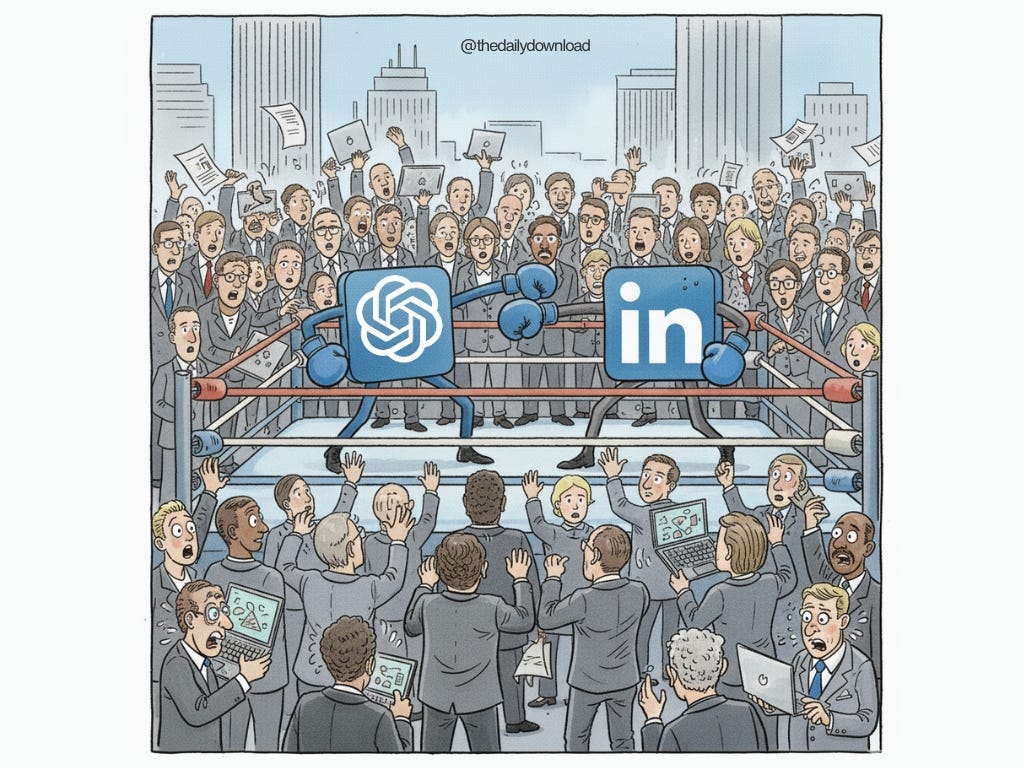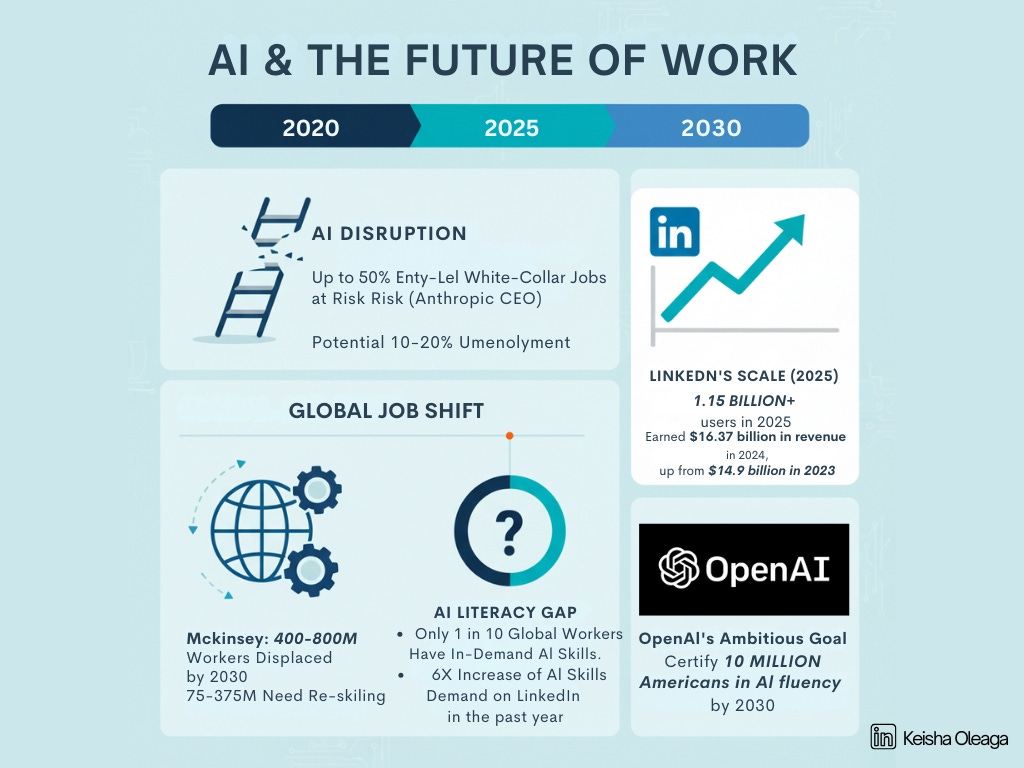OpenAI Wants to Decide If You’re Hireable
OpenAI just announced the OpenAI Jobs Platform, an AI-powered hiring service launching in 2026.
Hey readers, apologies for the short hiatus; work, life, and a few other things had piled onto my plate, but I did miss the Daily Download, and I am officially back. And of course, there is never a dull day in the world of tech, and I thought I’d break that hiatus with an interesting AI story from this past week.
Last week, OpenAI rolled out plans for a new Jobs Platform, set to launch in 2026. On the surface, it looks like another tech giant taking on LinkedIn. But I believe the play here runs deeper. With AI-driven job matching and a new system of AI fluency certifications through its OpenAI Academy, and Walmart already signing on, OpenAI is making a bid to reshape the very credentials that decide who gets hired and showing us a sneak peek of what they believe will be the future of work.
LinkedIn has spent two decades building its empire on the social graph of careers, who you know, which circles you move in, and how recruiters read those connections. OpenAI wants to flip that script. Instead of “who you know,” it’s about “what AI says you know.” The future, as OpenAI imagines it, belongs to algorithmic badges that validate skills, especially AI literacy.
And the timing tracks. The European Commission’s 2025 Strategic Foresight Report warns that AI is already reshaping every corner of work and society. It calls AI a “general-purpose technology” on par with electricity or the internet—powerful enough to boost productivity across sectors from healthcare to manufacturing, but disruptive enough to destabilize millions of jobs. The report claims that preparing for “AI labour shocks” is now a resilience priority for Europe, and large-scale upskilling programs are urgent.
The report also states that the EU is projected to lose 17 million working-age people by 2040. This is mainly due to rising inequality, mental health crisis (especially among the youth), and, of course, AI.
This makes OpenAI’s credential system less of a moonshot and more of a race to plug a gap: skills are changing faster than universities, HR systems, or governments can adapt.
The easy headline is “OpenAI vs. LinkedIn.” But this is no clean rivalry. Microsoft owns LinkedIn and also happens to bankroll OpenAI. LinkedIn co-founder Reid Hoffman was an early OpenAI backer.
The foresight report also makes clear that the lines between public and private are blurring. A handful of global platforms now shape not just markets but policy directions. That’s why this story isn’t just about competition for users; it’s about which actor gets to define employability in an AI economy.
By the numbers
LinkedIn: 1+ billion members; ~$17B in annual revenue.
OpenAI: Certifications aimed at tens of millions by 2030.
Foresight Report: 17 million fewer working-age Europeans by 2040, even as demand for STEM and AI skills spikes.
Global disruption: 300–800 million jobs worldwide could be upended by automation by 2030.
OpenAI is building the same tools many fear will automate away white-collar jobs, while also building the platform to requalify the displaced.
The irony of all of this is that many of us blame OpenAI for the accelerating disruption, job market fears, and even the climate crisis, but if not Sam Altman, it would have been someone else.
OpenAI can’t stop even if it wanted to. Its competitors like Anthropic, xAI, and Google Gemeni are moving just as fast. Pausing would mean losing market share, mindshare, and the data advantage, which is the fuel that makes these models smarter.
Also, AI-focused jobs and titles are already becoming a part of the biggest brand names’ workforce. Vogue Business recently reported that Lululemon has appointed its first C-suite executive directly tasked with overseeing the company’s implementation of AI. In a newly created role as chief AI and technology officer. Ranju Das will oversee the “development and execution of the next phase of Lululemon’s technology and AI strategy.”
So this “shift” is already happening, but it seems that the future of work will be more about who gets to certify what counts as “work-ready” or better yet, “AI-work ready.”
How does one become a “Chief AI Officer?” How do you build up to that career? How can you actually prepare yourself?
To state the obvious, AI literacy is no longer optional. Lifelong learning, re-skilling, adaptability, these aren’t soft recommendations anymore; they’re survival strategies. OpenAI knows it, and it’s positioning itself not just as a toolmaker but as a gatekeeper of employability.



